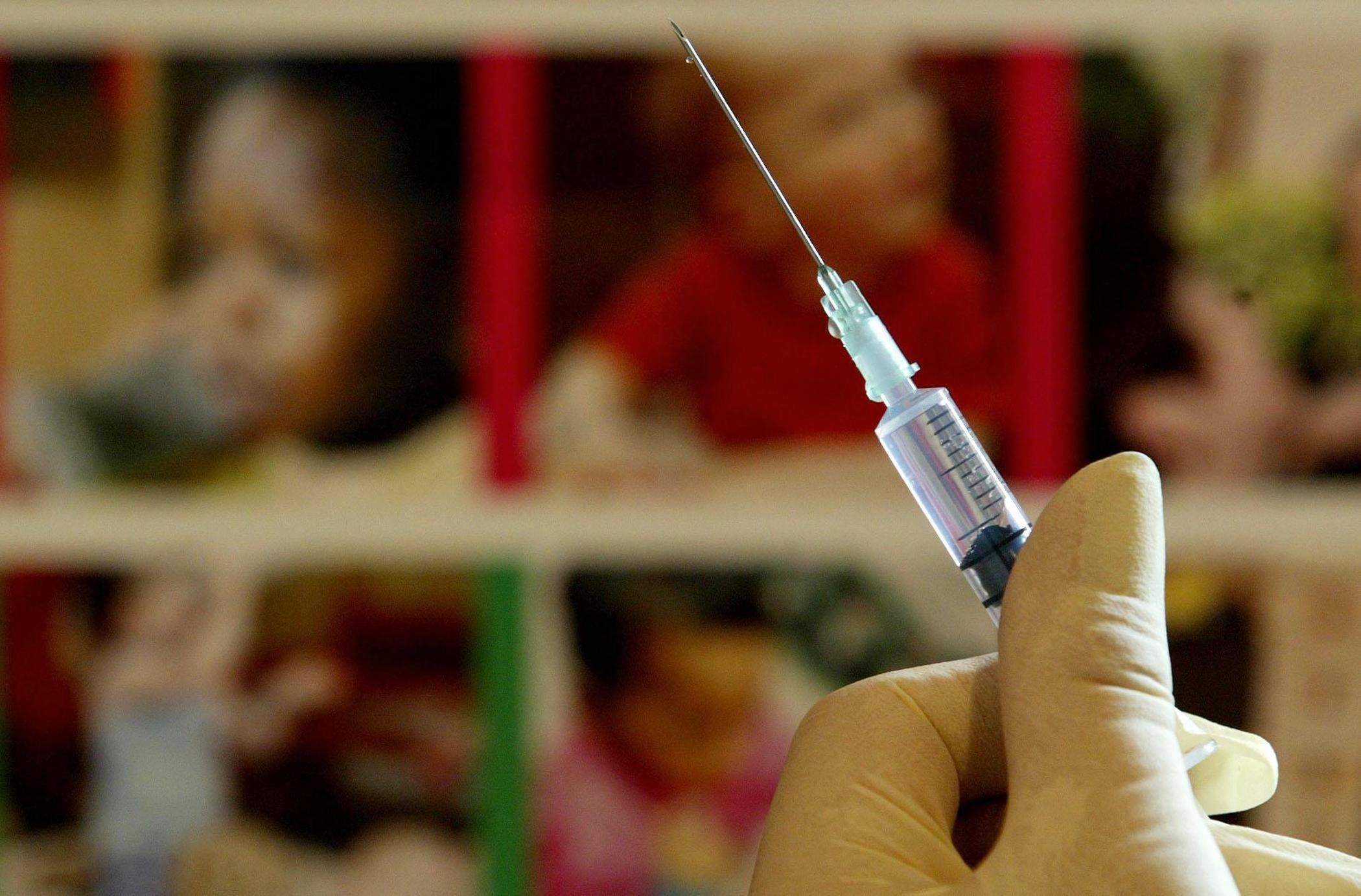C-section babies ‘have less protection from measles after only one jab’
A second measles vaccination dose needed as a single dose in some children is likely to fail, scientists warn

Your support helps us to tell the story
This election is still a dead heat, according to most polls. In a fight with such wafer-thin margins, we need reporters on the ground talking to the people Trump and Harris are courting. Your support allows us to keep sending journalists to the story.
The Independent is trusted by 27 million Americans from across the entire political spectrum every month. Unlike many other quality news outlets, we choose not to lock you out of our reporting and analysis with paywalls. But quality journalism must still be paid for.
Help us keep bring these critical stories to light. Your support makes all the difference.
Children born by C-section have less protection from measles if jabbed with only a single dose than babies born by a vaginal birth, scientists have suggested.
Experts from the University of Cambridge and Fudan University in China warned that children must have both doses of the measles jab to ensure they are protected against the deadly disease.
A study of 1,505 children born in Hunan, China, found 12 per cent of children born via Caesarean had no immune response to their first measles vaccination, compared to 5 per cent of children born by vaginal delivery.
The study comes amid growing global concern over rising measles rates and reduced uptake of the measles, mumps and rubella vaccinations.
Researchers who carried out the study suggest the lack of immunity in Caesarean section children is linked to the development of a baby’s gut microbiome, which is the huge array of microbes that naturally live inside the gut.
Other studies have shown that a vaginal birth transfers a greater variety of microbes from mother to baby, which can boost the immune system.
The study was observational so it is not possible to determine if the children’s immune response was a direct result of the type of birth rather than other factors such as the characteristics of women who have C-sections.
The most recent data covering October to December last year shows just 89.1 per cent of children in the UK have had the first dose of their measles, mumps and rubella (MMR) vaccine by the age of two.
Some 85 per cent of children in the UK have had both doses by age five, which is below the 95 per cent needed for herd immunity to stop the disease spreading.
The Cambridge and Fudan University experts say lower vaccination rates have led to an outbreak of measles in the UK.
In the new study, researchers examined data for 1,505 children in Hunan, China, which included blood samples taken every few weeks from birth to the age of 12.
This allowed researchers to see how immunity to measles changes over time, including after vaccination.
The researchers said Caesarean section births were linked with “2.56 increased odds of primary vaccine failure”, compared to babies born naturally.
However, Caesarean children who had a second dose of the measles jab had robust immunity against the disease.
Professor Henrik Salje, from the University of Cambridge and joint senior author of the study, said: “With a C-section birth, children aren’t exposed to the mother’s microbiome in the same way as with a vaginal birth.
“We think this means they take longer to catch up in developing their gut microbiome, and with it, the ability of the immune system to be primed by vaccines against diseases including measles.
“We know that a lot of children don’t end up having their second measles jab, which is dangerous for them as individuals and for the wider population.”
“Infants born by C-section are the ones we really want to be following up to make sure they get their second measles jab, because their first jab is much more likely to fail.”
In the UK, the first dose of the combined jab is usually given on the NHS between 12 and 13 months of age.
A second dose for full protection is given between the ages of three years and four months, and five.
Adam Finn, professor of paediatrics at the University of Bristol, said the new data was observational and could not prove cause.
But he added: “This evidence adds to previous evidence relating to other vaccines which has suggested that babies born by vaginal delivery and/or who are breast fed make stronger or more reliable immune responses.”
He said the new research raises important questions that need to be researched further, because many children are born by Caesarean delivery these days and the rates continue to rise.
“The authors also correctly emphasise that their findings reinforce the importance of the second MMR dose,” he said.
The new study was published in the journal Nature Microbiology.
Subscribe to Independent Premium to bookmark this article
Want to bookmark your favourite articles and stories to read or reference later? Start your Independent Premium subscription today.
Join our commenting forum
Join thought-provoking conversations, follow other Independent readers and see their replies
Comments